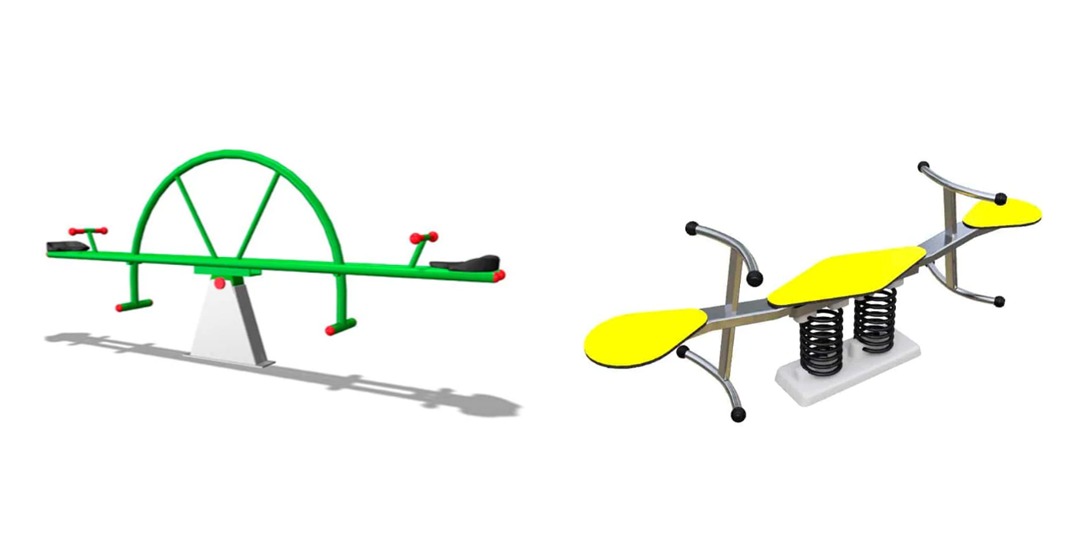Teeter-totters are one of the favorite elements for children in a playground, where with a simple swinging mechanism, it becomes an activity that brings many benefits and hours of fun. Teeter-totter skills develop in different aspects, making it a very suitable game for children of different ages as it can be used as a training tool or in physiotherapy. In this post, we will know some of the main benefits of teeter-totters for children.
Physical benefits
Teeter-totters are an excellent strength training exercise because every time a child lifts another child off the ground, they use the muscles of the legs, buttocks, and trunk; in addition, when making the falling movement, the impact must be controlled and it helps to strengthen the bones; this way, children have stronger muscles, awareness of physical movements, motor skills, agility, and leg-eye coordination are developed, instincts are improved, balance is improved, the heart and lungs work better, and the immune system is enhanced.
Social skills
Playing with the teeter totters must be done in pairs; therefore, interaction with another child is necessary, offering them the opportunity to make new friends, increase their communication, learn to relate to each other, and even reach agreements at the moment of establishing the speed or height at which they will play.
Help for children with special needs
Teeter-totters help the early stimulation of the senses and the development of social and evolutionary growth in children with an autism spectrum disorder or attention deficit hyperactivity disorder because they favor the child’s sensory regulation, helping them to focus on muscular work, strengthening their trunk and improving their balance. Children’s physical activity in the teeter totters allows them to release energy and tension, reduce their distraction and restlessness by developing their self-control, improve their focus and attention, learn to regulate their body movements, and provide them with a calming sensation.
Physiotherapy tool
In physiotherapy, teeter-totters can also help people with problems like balance, coordination, or flexibility. In this case, physiotherapists use playgrounds and teeter-totters as a tool within rehabilitation programs with specific exercises, so in this case, they must be used under the supervision of qualified personnel.
Emotional impact
In addition to the physical and social benefits, teeter-totters have an emotional impact on children: confidence is increased by seeing themselves able to lift someone off the ground and challenge children to achieve results, learning to face challenges and control their emotions in front of others.
Development of fine motor skills
The child’s development of balance, coordination, and fine motor skills is fundamental. Age-appropriate balance and coordination help the child participate in games and sports with less injury by learning appropriate postural responses. A teeter-totter is a proper tool as children learn to control their bodies during different tasks.
During play with teeter totters, muscles of the lower region and trunk are involved, and these large muscles, which are involved in gross motor skills, are fundamental for the development of fine motor skills since the child’s brain is activated after intense muscular exercise, developing fine motor skills such as holding or grasping objects.
What do you think about this topic? Do you know another benefit of teeter-totters?
If you want to know more about teeter-totters, you can contact us or write your question below (comments section).
